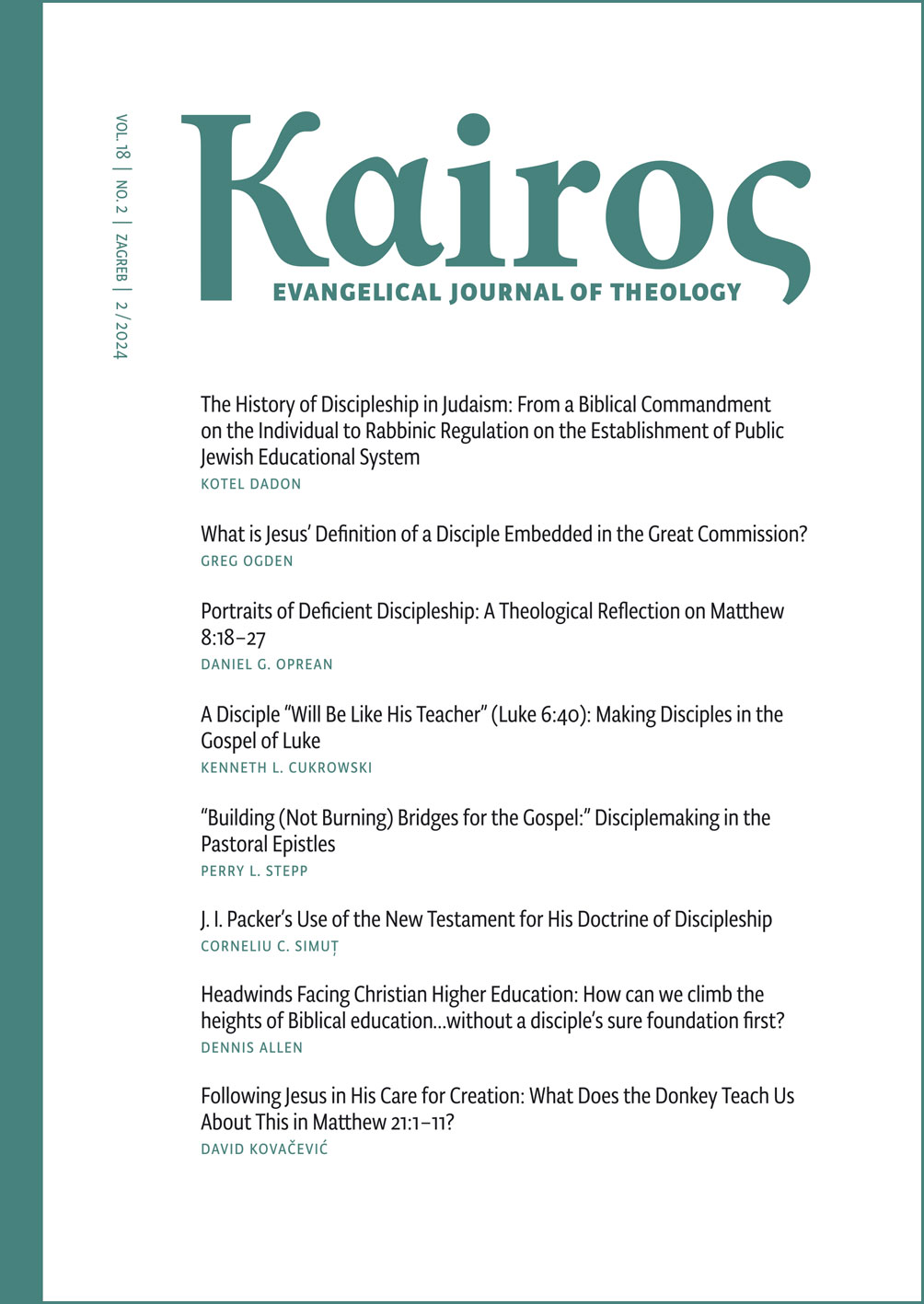“Building (Not Burning) Bridges for the Gospel”
Disciplemaking in the Pastoral Epistles
DOI:
https://doi.org/10.32862/k.18.2.5Keywords:
discipleship; disciplemaking; Pastoral Epistles; moral example; honor; shame; rebuke; creedsAbstract
In this article, I explore what the Pastoral Epistles (Titus and 1-2 Timothy) say about disciplemaking. I deal with the goals of Paul’s teaching in the letters and the methods that he commended to Timothy and Titus and the churches they served. Goals: the twenty-seven New Testament documents emphasize different aspects of following Jesus toward maturity (i.e., goals of disciplemaking) as the situations they were written to and from necessitate. In the Pastoral Epistles, Paul’s specific goal is that his readers live virtuous lives, largely as defined by the pagan culture around them. He hopes that in so doing they will gain and maintain a hearing for the gospel. Thereby they would avoid or defuse negative stereotypes that were used against Christians and ease societal anxieties that were common in their world. Methods: in these letters, Paul commends the use of moral examples and appeals to honor and shame. He further exemplifies the use of creeds as a teaching tool for his churches. My purpose is to show that the Pastoral Epistles offer a unique perspective on disciplemaking, focusing on the importance of public witness and utilizing methods like imitation and conformity to social values...
Published
Issue
Section
License
Copyright (c) 2024 Kairos : Evangelical Journal of Theology

This work is licensed under a Creative Commons Attribution 4.0 International License.





